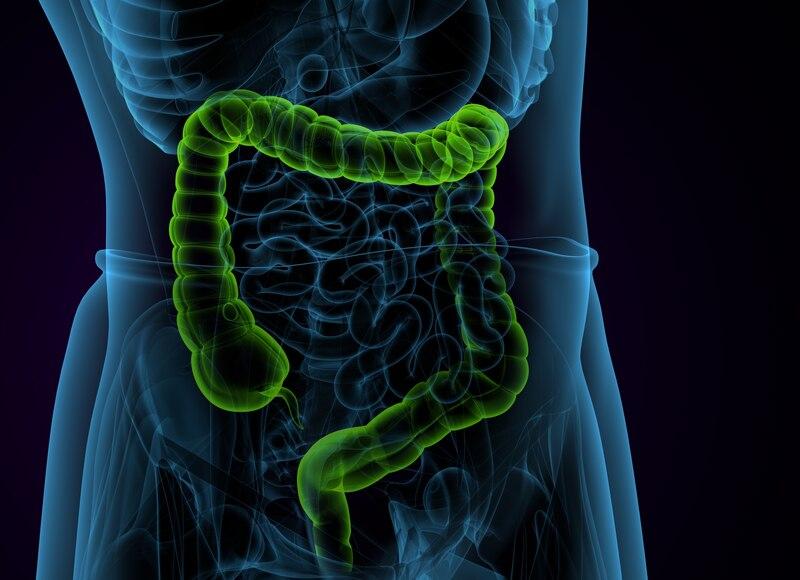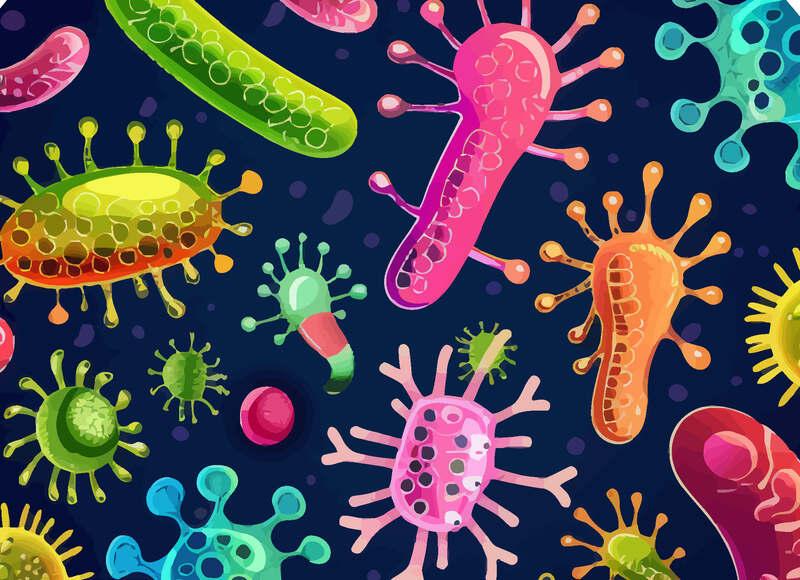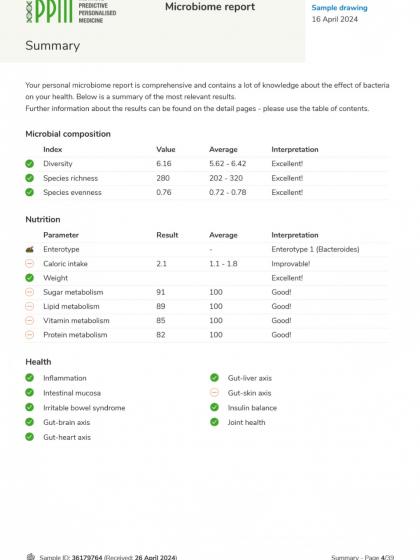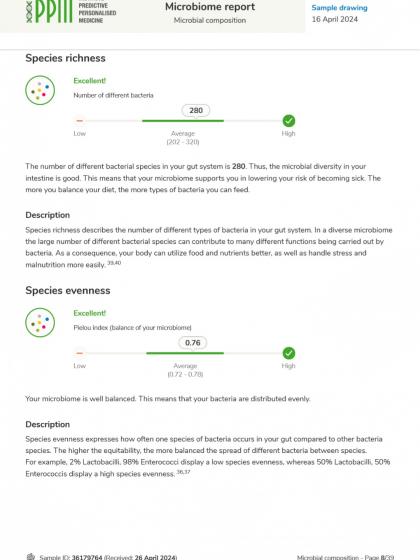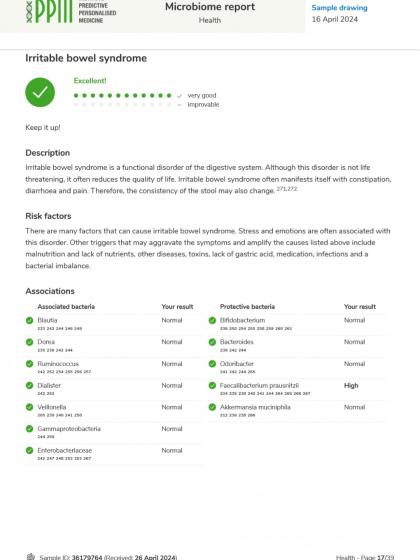
What is gut flora and why is it important?
Clinical studies over the last decades have clearly demonstrated that the gut microbial flora and its genome - the 'microbiome' - plays a fundamental role in human health. The gut microbiota can influence our mood, appetite, obesity or the development of allergies or intolerances. Negative changes in the composition of the gut flora (gut dysbiosis) are also associated with a wide range of gastrointestinal but also non-gastrointestinal diseases. Therefore, it’s extremely important to take care of your gut flora. Especially in light of the fact that due to the overuse of antibiotics and unhealthy lifestyle, intestinal dysbiosis is becoming extremely common in our modern society.

How can I find out if my gut flora is in good condition?
IPPM microbiome analysis can provide an answer to this question. This diagnostic test involves a method of genetic analysis capable of detecting the presence of hundreds of different probiotic strains of gut bacteria from small stool sample. In addition to the mere presence of species, the analysis also determines whether the bacteria are present in sufficient quantities and in the correct proportions relative to other species. Based on this information, it's possible to assess and grade the overall condition of the gut flora, including important indicators such as species diversity, balance, and the impact of the microbiome composition on metabolism and overall health.

 SK
SK